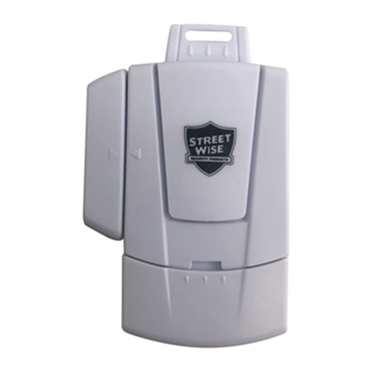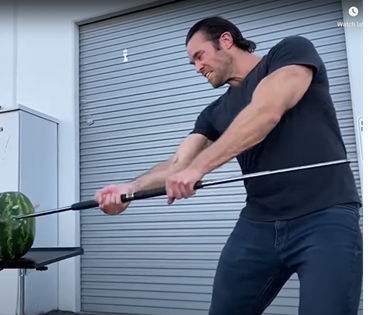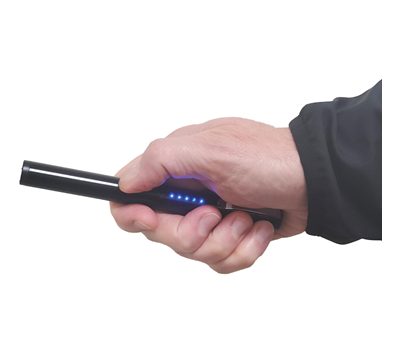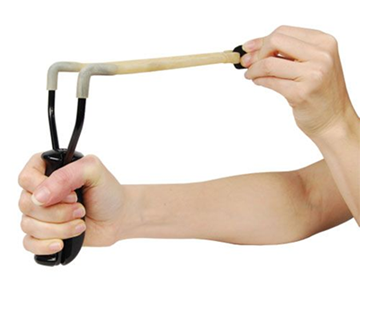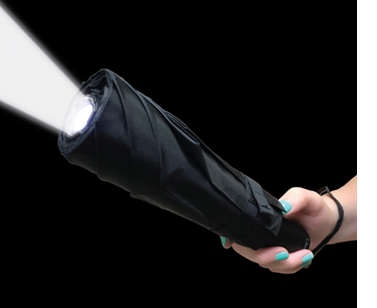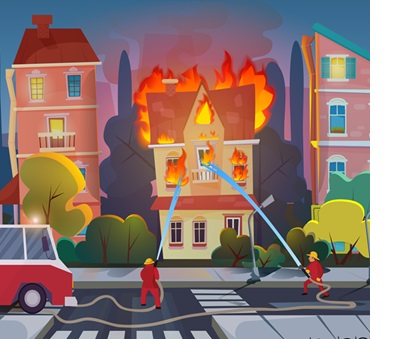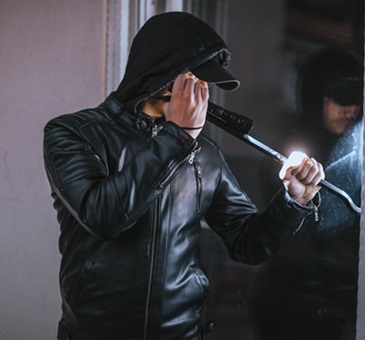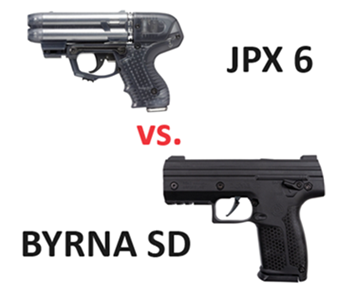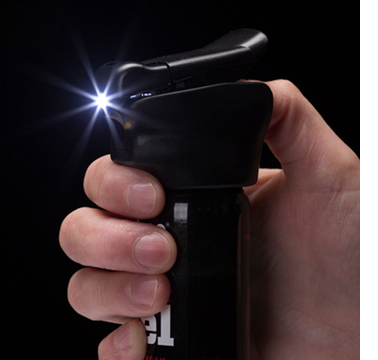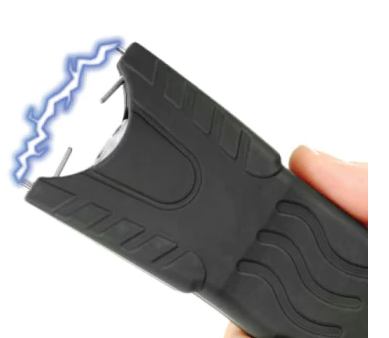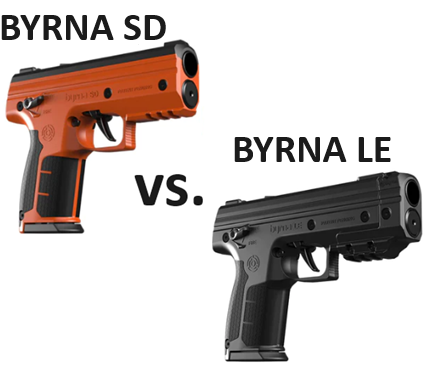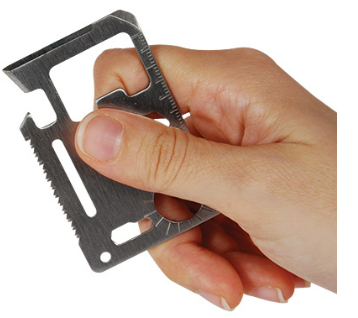Wisconsin Stun Gun and TASER Laws
 Stun guns and Tasers are self-defense weapons that use electricity to incapacitate an attacker. These weapons have gained popularity in recent years as a non-lethal alternative to firearms. However, their legality is a matter of state law, and Wisconsin has some unique regulations in place.
Stun guns and Tasers are self-defense weapons that use electricity to incapacitate an attacker. These weapons have gained popularity in recent years as a non-lethal alternative to firearms. However, their legality is a matter of state law, and Wisconsin has some unique regulations in place.
In this blog post, we will discuss the laws surrounding stun guns and Tasers in Wisconsin and provide you with the information you need to stay safe and within the bounds of the law.
Stun Guns and Tasers: What’s the Difference?
Stun guns and Tasers are often used interchangeably, but they are not the same thing. A stun gun is a handheld device that delivers an electric shock when it comes into contact with the body. The shock temporarily disables the attacker, giving the victim time to escape or call for help.
A Taser, on the other hand, fires two small darts that attach to the attacker's skin or clothing. The darts deliver an electric shock that incapacitates the attacker from a distance, giving the victim a safer distance from the attacker.
Wisconsin Stun Gun and Taser Laws
In Wisconsin, it is not mandatory for adults to obtain a permit to possess a stun gun or Taser within their private residences or business premises. However, if you wish to carry an electric weapon in any other location, you will require a concealed carry license.
In 2011, Wisconsin passed Act 35, which legalized the possession and use of stun guns and Tasers. However, the law includes several restrictions that must be followed:
- You Must Be 18 Years or Older to Purchase a Stun Gun or Taser
In Wisconsin, you must be at least 18 years old to purchase a stun gun or Taser. This requirement applies to both in-store and online purchases.
- You Must Have a License to Carry a Stun Gun or Taser
If you want to carry a stun gun or Taser on your person, you must have a valid Wisconsin Concealed Carry License (CCL). This license allows you to carry any self-defense weapon, including a firearm, in a concealed manner.
To obtain a CCL, you must be at least 21 years old, complete a training course, pass a background check, and pay a fee. Once you have a CCL, you can carry a stun gun or Taser in the same manner as a firearm.
- Stun Guns and Tasers Cannot Be Carried in Certain Places
While you can carry a stun gun or Taser with a valid CCL, there are certain places where they are prohibited. These include:
- Any federal property or building
- Any state-owned building or grounds
- Any school, including college and university campuses
- Any property where a court is in session
- Any private property where the owner has posted a sign prohibiting weapons
If you are caught carrying a stun gun or Taser in a prohibited place, you could face criminal charges.
- Stun Guns and Tasers Cannot Be Used Recklessly
Even if you have a valid CCL, you cannot use a stun gun or Taser recklessly. Wisconsin law defines reckless use as:
- Intentionally or recklessly pointing a stun gun or Taser at another person
- Using a stun gun or Taser in a manner likely to cause bodily harm
- Using a stun gun or Taser on someone who is restrained or under the influence of drugs or alcohol
If you use a stun gun or Taser recklessly, you could face criminal charges.
- Stun Guns and Tasers Cannot Be Used with Intent to Harm
In Wisconsin, you cannot use a stun gun or Taser with the intent to harm another person. If you use a stun gun or Taser to intentionally cause harm, you could face criminal charges. The only time you can use a stun gun or Taser is when you reasonably believe that it is necessary to defend yourself from an imminent threat of bodily harm.
- Stun Guns and Tasers Cannot Be Used in Certain Situations
There are certain situations where the use of a stun gun or Taser is prohibited in Wisconsin. These include:
- During a lawful arrest or detention by a law enforcement officer
- During a lawful search by a law enforcement officer
- Against a law enforcement officer engaged in his or her duties
If you use a stun gun or Taser in any of these situations, you could face criminal charges.
- Stun Guns and Tasers Must Be Used in Self-Defense Only
In Wisconsin, you can only use a stun gun or Taser in self-defense. You cannot use these weapons to settle a dispute or to retaliate against someone. If you use a stun gun or Taser in any other situation, you could face criminal charges.
Penalties for Violating Stun Gun and Taser Laws in Wisconsin
If you violate any of the laws surrounding stun guns and Tasers in Wisconsin, you could face criminal charges. The penalties for these charges can include fines and imprisonment.
If you use a stun gun or Taser to intentionally cause bodily harm to another person, you could face felony charges. Felony charges can result in up to 6 years in prison and up to $10,000 in fines.
If you use a stun gun or Taser recklessly, you could face misdemeanor charges. Misdemeanor charges can result in up to 9 months in jail and up to $10,000 in fines.
If you carry a stun gun or Taser in a prohibited place, you could face misdemeanor charges. Misdemeanor charges can result in up to 9 months in jail and up to $1,000 in fines.
Final Thoughts
Stun guns and Tasers can be effective self-defense weapons when used responsibly. However, it is important to understand the laws surrounding these weapons in your state to ensure that you are using them within the bounds of the law.
In Wisconsin, you must be at least 18 years old to purchase a stun gun or Taser, and you must have a valid Concealed Carry License to carry them on your person. There are also certain places where stun guns and Tasers are prohibited, and you cannot use them recklessly or with intent to harm.
If you are considering purchasing a stun gun or Taser for self-defense purposes, be sure to familiarize yourself with the laws in your state and follow them carefully to avoid criminal charges.
See the cost of Stun Guns and TASERS.
Disclaimer: The information provided in this blog post is for general informational purposes only and should not be construed as legal advice. The laws and regulations regarding stun guns, TASER devices, and other electronic defense weapons can vary widely by jurisdiction and can change over time. Therefore, it's important to consult with legal professionals or relevant authorities to obtain accurate and up-to-date information that applies to your specific circumstances.

